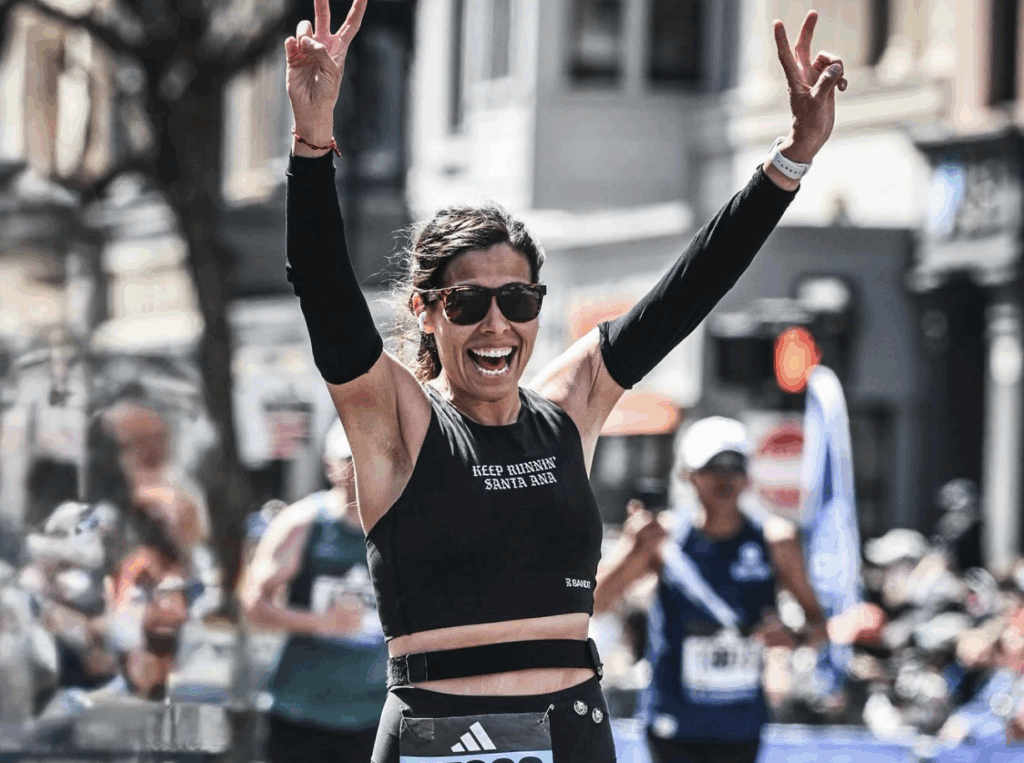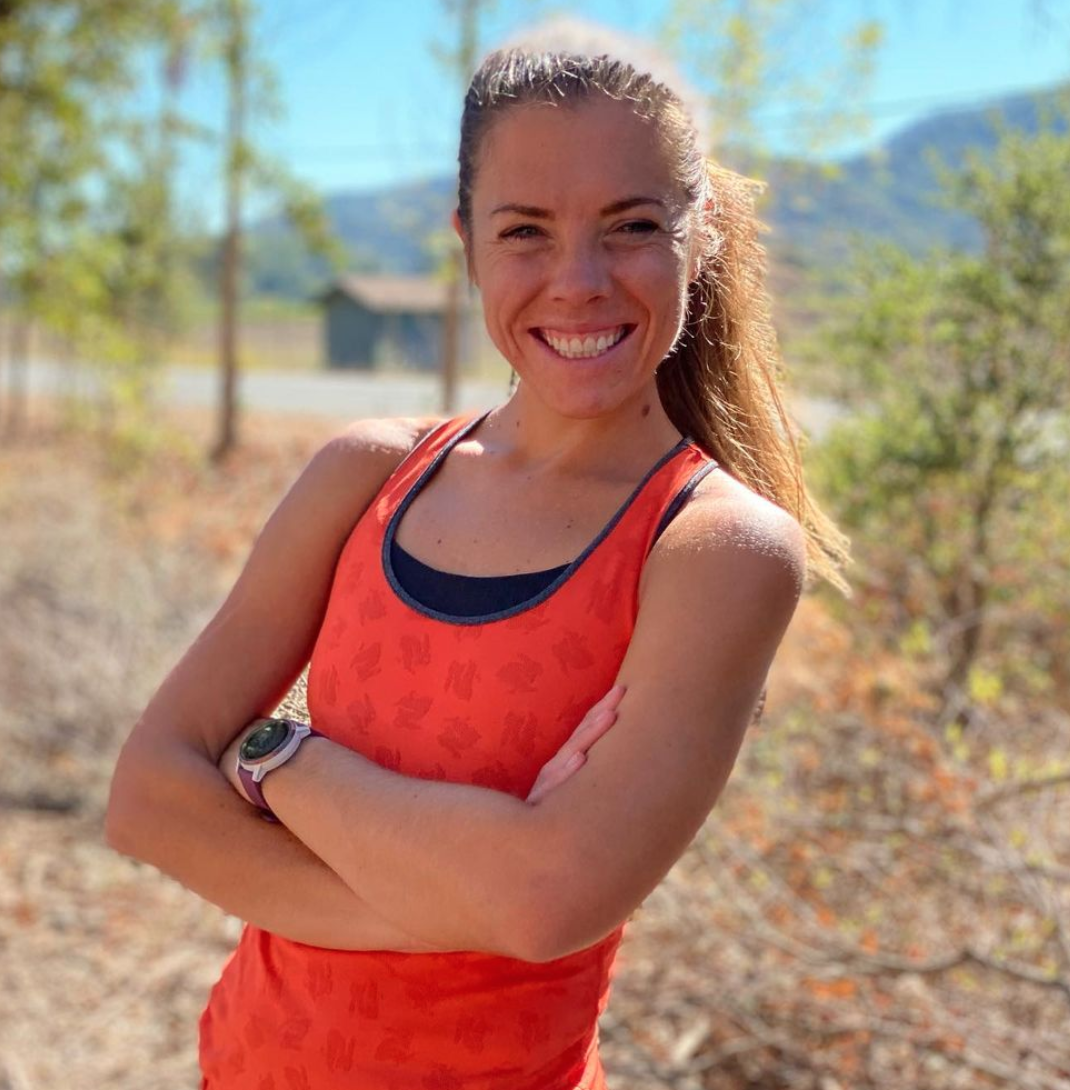Running for Likes or Love?

Karina Gamboa Soto didn’t grow up playing sports. She started running to lose weight but over time, it became something much bigger. Now a high-mileage marathoner from Orange County, Karina shares her runs daily on Instagram, where she’s gained a reputation for being real, consistent, and community-minded.
The Instagram Effect
Her journey into social media started around the same time Instagram changed its explore page. “All of a sudden, I saw a lot of running content popping up on my feed,” she says. “I had been running off and on for years, but I never cared about pace. I ran because I loved it.”
That changed in early 2023, when she ran her first 5K and decided to train for a marathon. Posting her progress felt natural, and it gave her accountability. “Once I started documenting things, I wanted to learn more. I went from clueless about speed workouts to structuring my training. I wanted to be better.”
When Comparison Creeps In
But like many athletes online, Karina quickly felt the weight of comparison. Seeing runners her age post faster times made her second-guess herself. “It messed with how I saw food and performance. I thought eating a high-protein, low-carb diet would fix everything. It didn’t.”
Platforms like Strava didn’t help. “Sometimes it tells you your effort wasn’t good enough. Or it shows you what you ran a year ago, and you realize you’ve slowed down. It plays mind games. Even if you’re proud of what you did, seeing that graph dip can leave you feeling like you didn’t try hard enough.”
Despite that, she’s careful not to let social media dictate her training. “I run high mileage because I love it. But there’s definitely pressure to keep up the ‘high-mileage runner’ image. Even 50-mile weeks can feel disappointing sometimes.”
That pressure is something she acknowledges, even if it’s mostly internal. “I don’t think people would care if I ran 30 miles instead of 80, but I’ve built this identity around consistency. So I feel like I need to keep showing up.”
ADVERTISEMENT
Showing the Hard Miles Too
Staying authentic is important to her. Karina shares both the good and the hard. “When I started in 2013, I was 220 pounds running 14-minute miles. Now I run sub-7 miles in races. That didn’t happen overnight. I’m proud of it, and I’ll always share how far I’ve come.”
She’s not afraid to post about a bad race or a rough week, either. “People think I’m a robot sometimes. But I’ve cried after races. I’ve had DNSs. I think it’s important to show that: not everything is sunshine and medals.”
The pressure to PR is real, too. “I’ve placed in my age group at smaller races. So when I don’t hit a goal, it feels like I’m letting people down…even if they don’t actually care.”
Running Culture, Rewritten
And while social media has brought connection, it’s also shaped running culture in ways she finds frustrating. “It used to be about getting outside and running. Now it feels like you have to wear the right shoes or outfits to count. It’s not about that for me.”
Even the influencer space has shifted things. “Some people get into major races without qualifying, and that can be hard to see when you’re doing everything right and still not getting in. I just hope race organizers remember that regular runners are putting in the work, too.”
What keeps her grounded is community. Karina is part of Keep Running Santa Ana, a local running group that has become like family. “I didn’t find them until recently, and honestly, I wish I had sooner. They’ve been the biggest support system: online and in person.”
She adds, “There’s something really special about running with people who get it. They cheer for your races, check in after long runs, and celebrate everything from PRs to just showing up. That kind of support makes all the difference.”
Even when she took a short social media break, her community noticed. “I took a week off, and people messaged me asking if I was okay. That really reminded me that people were paying attention, and maybe my consistency mattered more than I realized.”
Real Talk on Success
To Karina, success isn’t defined by medals or race times. “It’s about doing the work. You can hire a coach, but you still have to show up. Social media can inspire you but it’s your effort that gets you there.”
Her approach to posting is simple: daily runs on stories, races on the main feed. “That balance works for me. I never want to feel like I’m oversharing, but I also want to stay honest.”
Advice to the Scroll-Stressed Runner
If she could offer one piece of advice to a new runner entering the world of social media, it’s this: “Stay true to yourself. Run your own pace. Post what you want: not what you think people want to see. And if you can, find a community. Whether it’s online or at a local group, running with others who get it can make everything feel more doable.”
She adds, “There will always be someone faster. There will always be someone with a prettier feed or better gear. But none of that matters if you’re not running for yourself. You don’t need to impress anyone to be part of the running world: you already belong.”
ADVERTISEMENT

Hollie is a runner, hiker, swimmer, residing in California. She has worked in run specialty for nearly 8 years and has fit hundreds of people for shoes. Outside of the running world, she enjoys the general aviation world, her two cats, and spending time with her spouse.






